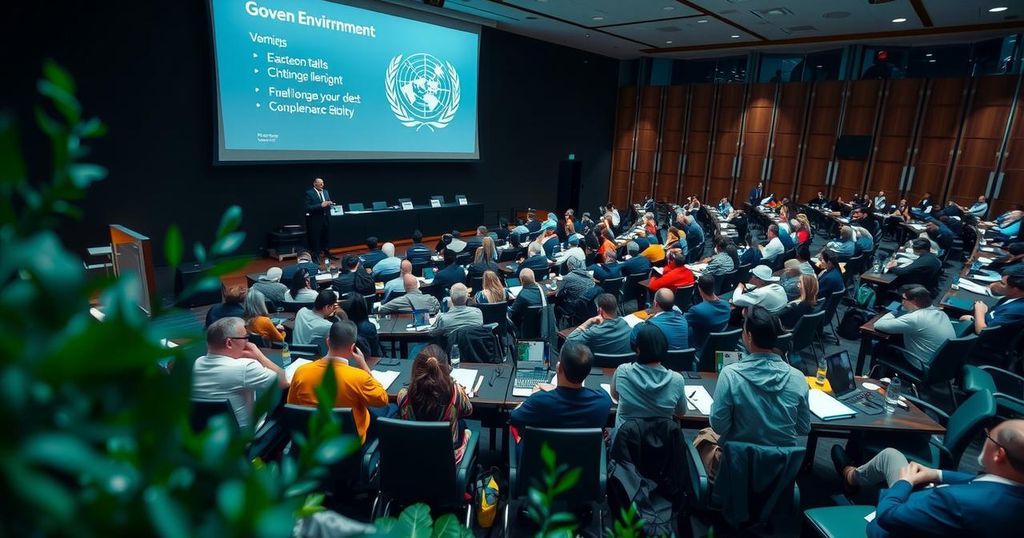Persistent Challenges at UN Climate Conferences: A Historical Overview

The recent UN climate talks in Baku highlight ongoing struggles for consensus akin to past conferences, including the notable failures of COP6 and COP15. Historical disappointment stems from a lack of agreement among member states on key climate issues. The continuation of such challenges was evident in the recent biodiversity COP16 in Colombia, which resulted in a lack of decisions. Upcoming talks have been scheduled, emphasizing the need for actionable outcomes.
Recent UN climate talks in Baku saw negotiators grappling with an uncertain outcome, a situation not unfamiliar in the history of these discussions since the inaugural conference in 1995. The 2000 COP6 in The Hague exemplified failed negotiations, leading to the suspension of talks over contentious issues, particularly regarding land use credits impacting emissions reductions under the Kyoto Protocol. Alden Meyer remarked, “There was that uncertainty. They couldn’t agree. And ministers started leaving, and they had to suspend the COP.” The election of President George W. Bush, a known climate sceptic, catalyzed more proactive efforts in subsequent discussions in Bonn, showcasing a potential shift in climate diplomacy despite setbacks.
COP15 in Copenhagen in 2009 stands out as a landmark conference characterized by high expectations and subsequent disillusionment. President Barack Obama’s election raised hopes for progress, drawing a plethora of global leaders to Denmark. However, the planning misalignment between seasoned negotiators and political leaders culminated in frustration, particularly from smaller nations excluded from critical discussions. Observers note, “Copenhagen was also marred by logistical problems that sapped momentum,” which illustrates practical challenges the conferences often face. Ultimately, the Copenhagen accord acknowledged climate change realities, yet it fell short in providing binding commitments or substantial emissions cuts.
More recently, COP16 on biodiversity in Colombia echoed historical patterns of indecision, as talks extended without achieving a consensus on resource commitments necessary to combat ecological degradation. The event extended into an extra night due to a lack of quorum as delegates departed their posts prematurely. Hence, Colombia’s presidency has called for a resumption of talks slated for early 2025, reflected in continuing struggles within international environmental negotiations.
The United Nations climate conferences, held annually since 1995, aim to establish a global consensus on climate action. However, many of these conferences have experienced notable failures, often marred by disagreements among member states on crucial issues such as emissions reduction targets and financial commitments for climate adaptation. Historical events, including COP6 in The Hague and COP15 in Copenhagen, serve as pivotal examples where anticipated agreements failed, leading to significant disappointment within the international community. More recent gatherings, like COP16, further illustrate the ongoing challenges faced by negotiators and the long-standing issues of political will and logistical coordination.
In summary, the challenges faced by UN climate conferences are reflective of broader complexities in international diplomacy surrounding climate action. The repeated failures and logistics issues demonstrate the necessity for clearer strategies and enhanced cooperation among nations to achieve meaningful commitments. With future discussions planned, particularly in biodiversity and climate finance, comprehensive engagement remains crucial to transcend historical disappointments.
Original Source: www.al-monitor.com






